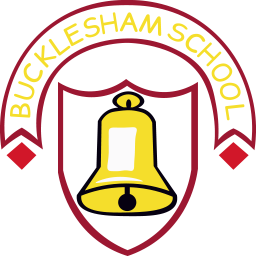Spelling
At Bucklesham Primary School , we believe spelling is a developmental process. Spelling is a visual-motor skill and children will therefore need to develop visual strategies in order to spell correctly. Phonic knowledge alone will be inadequate.
Aims
- To encourage children to look carefully at the words
- To help children understand how the English spelling system works and how our history of spelling has influenced our spelling.
- To help and encourage children, developing their confidence as competent spellers, because the ability to spell the most words correctly is often closely associated with good self-esteem which affects performance in other areas of the curriculum.
- To develop and extend the children‛s vocabulary through shared guided and independent spelling activities.
- To help children enjoy spelling and recognise its value.
Teaching and Learning
Teaching and learning of spelling in the Foundation Stage and Key Stage 1 is underpinned by the use of a high quality phonics programme, alongside the new National curriculum requirements for spelling in years 1 and 2. Little Wandle Phonics will be used.
Children will be taught:
- the grapheme- phoneme correspondence in a clearly defined sequence, using Little Wandle progression document as a basis for this sequence.
- the skill of segmenting words into their constituent phonemes to spell.
- that blending and segmenting are reversible processes.
Children in EYFS and KS1 may be taught in smaller phase groups led by teachers and teaching assistants.
Common Exception Words
Throughout each phase the tricky Common exception words will be taught. These will be referred to as Tricky Words (these are words which cannot be spelled using phonic knowledge alone at the phase they are introduced) the skill of segmenting words into their constituent phonemes to spell.
Transition from Year 2 to Year 3
By the end of Year 2, the expectation is that most children will be secure at phase 5, though further work will be required to ensure they have the knowledge and understanding of alternative spellings for each phoneme. Any child who needs further support will be accessing the Rapid Catch Up programme from Little Wandle with a teaching assistant.
Key Stage 2
The long term plans for teaching spelling in Key Stage 2 will be taken from the Spelling appendix in the new National Curriculum for English (see information for parents and carers for spelling lists). We also use CUSP spelling scheme to support teaching.
Strategies
Children will develop different strategies for memorising high (Tricky Words) or subject specific vocabulary.
Other memory strategies to support learning of high frequency (Tricky words) or subject specific vocabulary:
- Syllables To learn my word I can listen to how many syllables there are so I can break it into smaller bits to remember (e.g. Sep-tem-ber, ba-by)
- Base words To learn my word I can find its base word (e.g. Smiling – base smile +ing, e.g. women = wo + men)
- Analogy To learn my word I can use words that I already know to help me (e.g. could: would, should)
- Mnemonics To learn my word I can make up a sentence to help me remember it (e.g.could – O U Lucky Duck; people – people eat orange peel like elephants)
Links with other areas of the curriculum
The skills that children develop in spelling are linked to, and applied in, every subject of our curriculum. The children‛s skills in spelling will enable them to communicate and express themselves in all areas of their work in school. The spelling of key vocabulary in all subject/topic areas will be taught through the strategies already listed above.
Children will be encouraged to read and spell new words relating to different topics taught across all areas of the curriculum, allowing their knowledge and vocabulary to be developed and extended further.
Using dictionaries and spelling checkers
Each class has dictionaries and thesauruses appropriate to the age range. Children are taught to use a dictionary and use these to check tricky spellings.
Inclusion
Some children, who may be experiencing difficulties, will be given additional support in small groups or one to one led by teachers or teaching assistants using Rapid Catch Up or Beat Dyslexia programmes.
